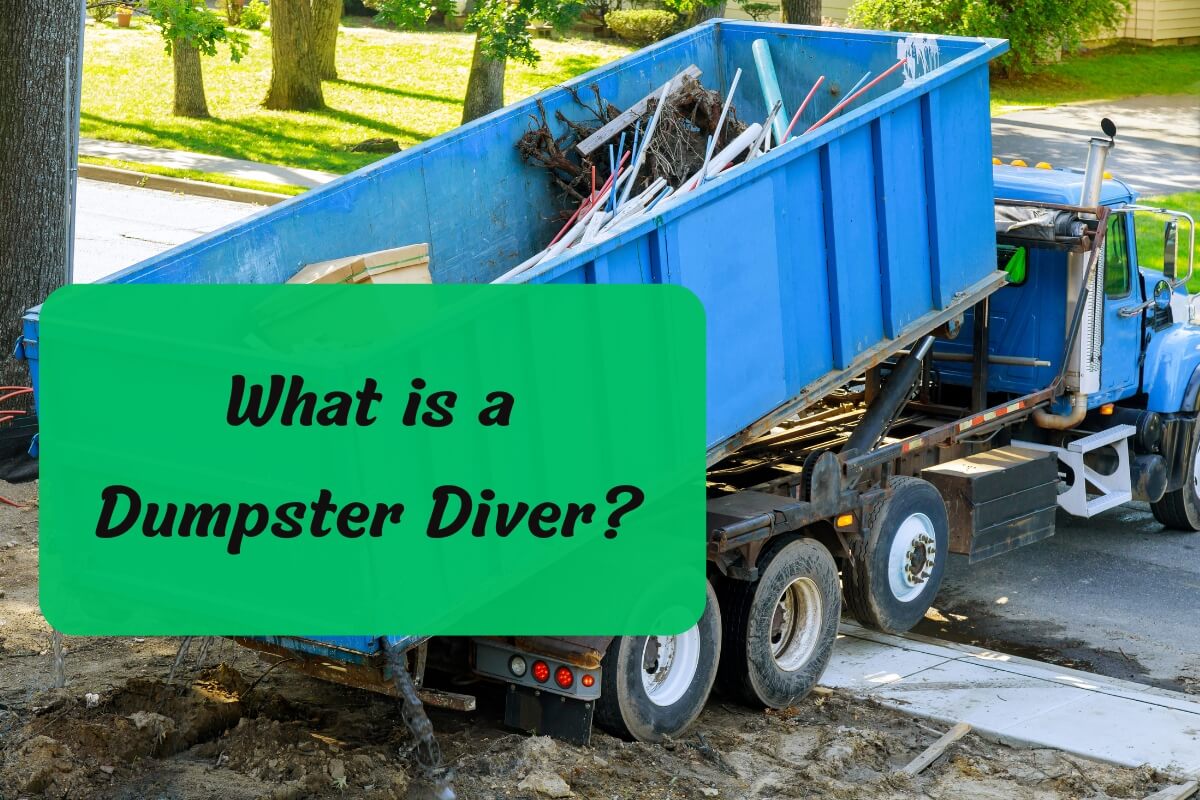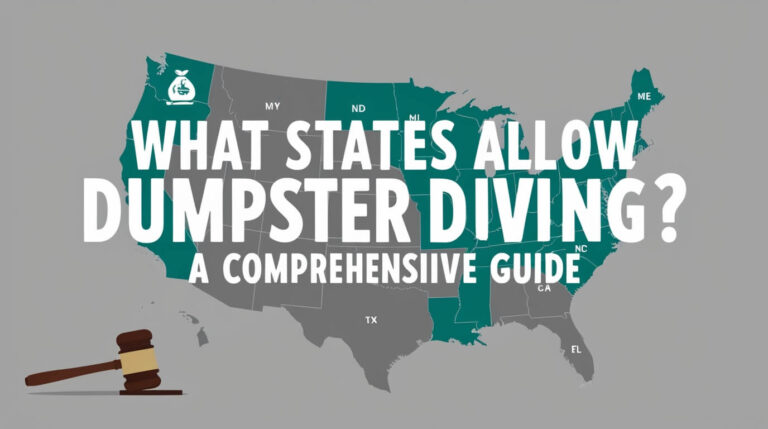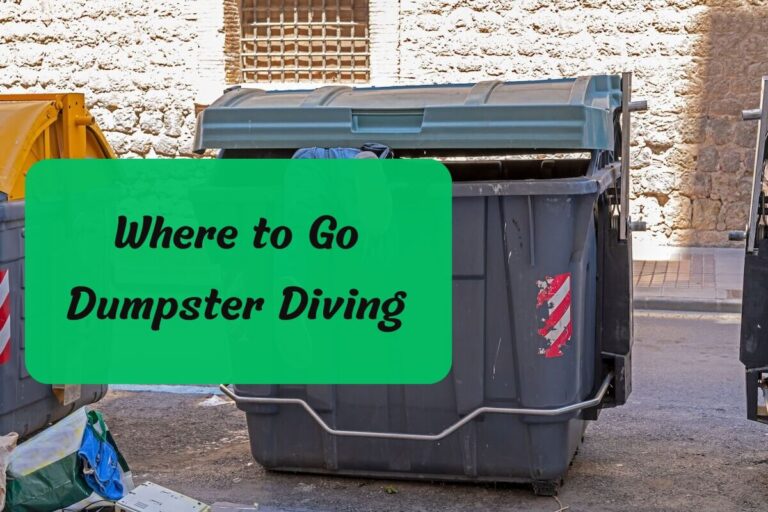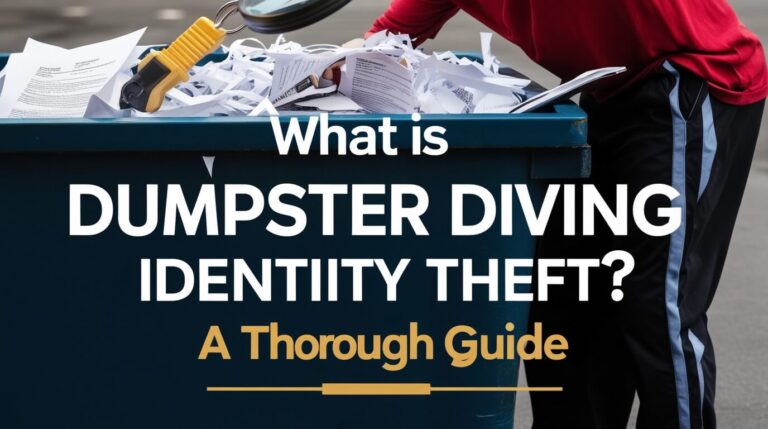
Have you ever wondered what kinds of treasures might be hiding in the dumpsters behind your favorite stores and restaurants? The practice of dumpster diving, also known as urban foraging, involves rummaging through commercial trash bins and dumpsters in search of valuable or usable items that have been discarded.
While it may seem like an odd hobby, dumpster diving has become increasingly popular in recent years, driven by a mix of economic, environmental, and social factors. This article explores dumpster diving – the people involved, their findings, the legality, and the subculture associated with this unconventional activity.
The Different Types of Dumpster Divers
Dumpster divers come from all walks of life, but they generally fall into a few key groups:
Those Doing It Out of Necessity
For people experiencing poverty, homelessness, or severe economic hardship, dumpster diving is often done out of necessity to find food, clothing, and other basic necessities. A 2014 survey found that around 1 in 5 Americans admit to eating food from the trash due to financial constraints.
Environmentalists and Activists
Some dumpster divers are motivated by a desire to reduce waste and protest excessive consumerism. By rescuing perfectly good items from landfills, they aim to raise awareness about society’s throwaway culture and its environmental toll.
Hobbyists and Entrepreneurs
A growing number of people see dumpster diving as an interesting hobby or even a way to earn extra income. These divers seek out valuable or resellable items like electronics, furniture, tools and building materials that businesses have discarded.
In a 2017 Statista survey, some estimates suggest around 21% of Americans have gone dumpster diving at some point, with another 13% interested but yet to try it.
What Treasures Can Be Uncovered?
You might be surprised at the vast array of items that can be salvaged from dumpsters. Experienced dumpster divers have found everything from gently used furniture and appliances to vintage collectibles and designer clothing – sometimes with the original tags still attached!
Some of the most common and sought-after finds include:
- Food: Grocery stores and restaurants frequently toss out perfectly edible food items due to damaged packaging, past sell-by dates, or overstock. Bakery items, produce, and non-perishables are common scores.
- Electronics: Outdated phones, computers, TVs, and other electronics are regularly discarded but can often be refurbished or parted out.
- Books and Media: Dumpsters behind bookstores, libraries, and video rental places can yield reading materials, movies, music, and video games.
- Home Goods and Decor: Dumpster divers report finding housewares, furniture, holiday decorations and more from home goods stores like HomeGoods, Bed Bath & Beyond, and more.
- Crafting/DIY Supplies: Discarded building materials, fabric, craft supplies and more can be scored for DIY projects and upcycling.
- Office Supplies: Reams of paper, pens, binders and more frequently get tossed from office supply stores, providing useful scores.
- Confidential Documents: An unfortunate but serious find, dumpster divers sometimes stumble upon sensitive documents exposing personal or corporate data when proper document destruction protocols aren’t followed.
Experienced dumpster divers have amazing stories of their strangest and most valuable finds, including brand new electronics still in their original packaging.
Is Dumpster Diving Legal? Understanding the Risks
One of the biggest concerns around dumpster diving is whether it’s legally permissible. The overarching answer is…it’s complicated.
The legalities come down to a few key factors:
- Property Status: In general, dumpsters located in publicly accessible areas like alleyways and parking lots are considered fair game. However, diving on clearly marked private property could potentially be considered trespassing.
- Local Laws: While not widespread, some municipalities have passed ordinances specifically prohibiting or restricting dumpster diving within their jurisdictions.
- Dumpster Ownership: If a dumpster has clear signage, locks, or enclosures designating it as private property, accessing it could open you up to litigation.
- Intent to Steal: As long as the trash was clearly meant to be discarded without any intent to retrieve it later, dumpster diving is generally viewed as legal “salvaging” rather than outright theft.
Dumpster divers need to know local laws and respect property boundaries. Even if legal, there are risks of confrontations with authorities, businesses, or property owners who may not like their activities.
Potential hazards like sharp objects, contamination from hazardous materials, needles, and run-ins with rodents or other pests are also ever-present dangers. Proper protective gear like gloves and closed-toe shoes are strongly advised.
Safety Tips for Responsible Dumpster Diving
- Research local laws and ordinances regarding dumpster access
- Never trespass on clearly marked private property
- Go at day or night? Choose times and locations strategically
- Bring thick gloves, close-toed shoes, and protective clothing
- Use tools like poles or hooks to avoid sticking arms in blindly
- Don’t take unsealed food items or anything questionable
- Identify and avoid hazardous items like broken glass or chemicals
- Leave the area clean and don’t make a mess
The Lucrative Business of Dumpster Diving
For some enterprising individuals, dumpster diving has evolved into a surprisingly lucrative side hustle or even full-time job. These savvy urban foragers know how to spot valuable items, refurbish them if needed, and resell their dumpster finds for profit.
Success stories abound of dumpster divers making thousands per month by listing their hauls for sale online through platforms like eBay, Craigslist, Facebook Marketplace and more.
Common high-value categories for reselling include:
- Electronics (laptops, TVs, cameras, etc.)
- Power tools, machinery and hardware
- Designer clothing, shoes and accessories
- Unused cosmetics and beauty products
- Office and school supplies
- Books, DVDs and video games
Many dumpster entrepreneurs have shared their processes for evaluating goods, cleaning and restoring them, pricing them competitively, and turning a healthy profit from stuff that would otherwise end up in a landfill.
The most lucrative dumpsters tend to be located behind big box retailers, electronics stores, book stores, home goods stores, office suppliers, and anywhere undergoing major remodeling, relocation or going out of business.
Professional dumpster diving lets some people make a living from society’s waste and businesses’ habit of throwing things away instead of reselling, recycling, or donating.
Dumpster Diving as Activism and Environmental Statement
For a subset of dumpster divers, the act of rummaging through society’s refuse is meant as a larger statement against excessive consumerism, corporate greed, and the catastrophic environmental impacts of our throwaway culture.
These divers, sometimes called “freegans,” aim to live as much of their lives as possible by diverting and repurposing society’s waste stream. From dumpster-sourced food to furnishing entire homes with found items, their lifestyle represents a principled stand against consumerism.
Well-known figures like protesters from the infamously anarchic Rainbow Family have used dumpster diving to sustain their nomadic communities and flout traditional capitalistic norms.
In 2007, activists made headlines by launching the Food Not Bombs movement – recovering surplus food from grocery dumpsters and using it to provide free community meals as a protest against waste and poverty.
Some universities have even taught classes examining the social, environmental and anti-consumerist philosophies underlying certain dumpster diving activities.
To these modern-day “freegans,” scoring usable goods from the trash isn’t just about saving money – it’s a symbolic rejection of the wastefulness inherent in a disposable, single-use economy.
Ethical Debates Around Dumpster Diving
Like many issues, the ethics of dumpster diving tend to spark polarized viewpoints. There are valid arguments on both sides of this rather unique moral quandary.
One perspective holds that willfully taking anything from a business’s private property, even if that property was meant for disposal, constitutes an unethical form of theft that deprives companies of potential revenue streams.
Critics argue that many dumpster-retrieved items could have been resold, recycled, or donated to charities
On the other side of the dumpster diving ethics debate are those who argue that businesses themselves are incredibly wasteful and contribute to environmental destruction by discarding perfectly good items purely for the sake of profits.
In this view, dumpster divers are simply being responsible stewards of limited resources by diverting still-usable items from an untimely fate in the landfill. There’s a moral argument that corporations should be doing more to avoid waste rather than enable and encourage a disposable, single-use economy.
Some ethicists have even cast dumpster diving as a form of anti-capitalist civil disobedience – a way for citizens to push back against corporate excess and reclaim ownership over goods that would otherwise be wasted.
Many dumpster divers personally attest that their activities are a conscious rejection of the wastefulness inherent to consumer culture. By making use of products that corporations have discarded needlessly, they feel they’re helping reduce environmental degradation one rescued item at a time.
Of course, there are also shades of nuance to consider. Few would argue against the ethics of dumpster diving for basic food items or necessities, particularly when driven by poverty or desperation. The moral quandaries grow thornier when it comes to retrieving valuable items, electronics, or anything containing sensitive data that could enable identity theft if proper disposal protocols weren’t followed.
As with many ethical issues, the fundamental dividing line seems to be around respecting private property rights versus prioritizing reducing societal waste and environmental impacts. Both are worthy objectives, which is part of what makes this issue so contentious.
Exploring the ethics of dumpster diving sheds light on views regarding corporate responsibility, ownership of discarded items, and prioritizing profit over sustainability.
The Future of Dumpster Diving
Given the deep philosophical divides, dumpster diving shows no signs of falling out of practice anytime soon. In fact, the activity may only continue growing in popularity as economic pressures, environmental awareness, and anti-consumerist attitudes intensify.
While still operating in a fairly niche realm, dumpster diving has attracted adherents from surprisingly diverse demographics – from hardcore “freegans” to crafty entrepreneurs to Cash-strapped college kids. As stories of people making small fortunes selling dumpster-sourced hauls continue circulating, it’s likely more will be intrigued to try their hand.
At the same time, pushback from corporations losing money, privacy advocates concerned about data breaches, and policymakers worried about litter or safety risks could lead to restrictive regulation around dumpster access in more municipalities.
Hopefully, the ideological divide will instead inspire corporations to be better environmental stewards themselves by developing more robust recycling, reselling, and donation programs for unwanted goods rather than trashing them outright.
Only time will tell whether dumpster diving remains a quirky subculture practiced by society’s fringes or becomes a more mainstream, accepted way of reducing personal consumption while combating reckless corporate wastefulness.
Conclusion
Dumpster diving has become a unique part of modern society, despite seeming unusual or unpleasant to some.
What began as a last-resort means of subsistence for the desperately poor has blossomed into a multi-faceted subculture with adherents from all walks of life – activists protesting excessive waste, bargain hunters seeking gently used treasures, entrepreneurs looking to profiteer off society’s rejects, and everyone in between.
As shocking as it may seem that perfectly good food, clothing, furniture, electronics and more end up getting tossed in enormous volumes, dumpster divers continually remind us that one person’s trash really can be another’s treasure.
Perhaps the rise of this quirky activity is exactly what’s needed to inspire more mindfulness around consumption, with dumpster divers laying bare the harsh realities of our throwaway culture. Or maybe it’s just an opportunistic way for some clever folks to benefit from big businesses prioritizing razor-thin profit margins above principles of sustainability.
However you view it, dumpster diving seems poised to remain a cultural phenomenon worth following – an echo of the past meeting the unmistakable wastefulness of modern society head-on. The dumpsters will stay occupied by divers for the foreseeable future.






